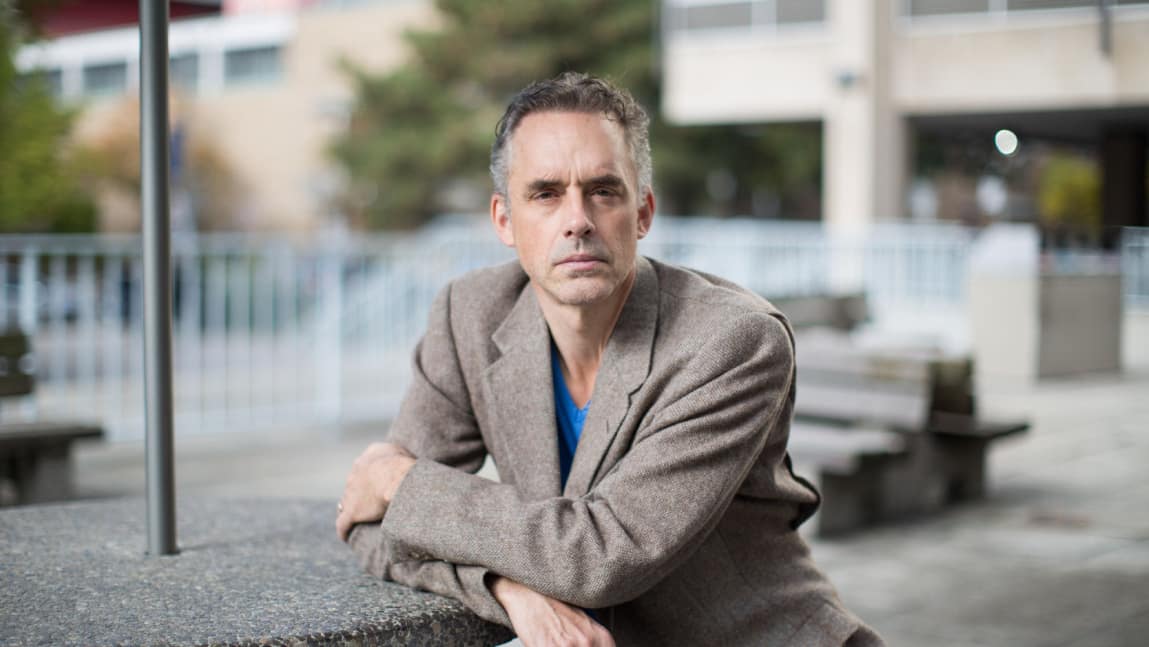Dr Jordan Peterson was once asked about abortion. After disclaiming that he had an answer good enough to reveal, the professor, psychologist, and best-selling author replied: ‘Abortion is clearly wrong. I don’t think anybody debates that. You wouldn’t recommend that someone that you love have one.’ Then, after some verbal ‘flailing about,’ as he described it, Peterson said this:
The discussion regarding the legality of abortion is nested inside a larger discussion about the morality of abortion, and that’s nested inside a larger discussion about the proper place of sexuality in human behaviour. . . Sexual relations in the modern world—they’re bent and warped and demented out of shape . . . I don’t think we’re mature enough as a culture to have a serious discussion about sexual propriety, especially in the aftermath of the birth control pill, and we seriously need to do that . . . I think the eternal debate about abortion—as horrible as it is—is a surface manifestation of a much deeper problem.
This is all true. But Peterson has been criticised by some pro-life commentators for saying it—or at least, for saying it as a way of concluding the conversation at this point. ‘I think Dr. Peterson is both right and wrong at the same time,’ writes Jonathan Van Maren, communications director of the Canadian Centre for Bio-Ethical Reform. ‘There is an enormous amount of work to be done surrounding the mess that our society has made of sexuality and relationships, a mess that is celebrated as liberation. But . . . many are recognizing that abortion is an issue of human rights: Human beings have human rights, human rights begin when the human being begins, and science tells us when a new human life begins.’
Of course Van Maren is correct. Abortion is a human rights issue and human life begins at fertilisation. If you dispute this, I put you in the same category as flat-earthers and young earth creationists—the deniers of science. But Peterson is a clinical psychologist. It is his job to focus on the psychology of the born, and to investigate how people get themselves into the kind of mess where abortion seems to them the least bad of a slew of bad options. Van Maren and many other pro-lifers would like to hear a more emphatic pro-life statement from Peterson, but it isn’t his place as a personality psychologist. He may be both right and wrong absolutely, but as a psychologist he’s just right, however inexhaustive his analysis.
Some Catholic commentators have accused Peterson of psychological reductionism particularly in reference to his biblical lectures. This worries many Christians. But Peterson has repeatedly and unequivocally denied that he is making a reductionist argument when he speaks of the psychology of Christianity. To do so would be ideological, and Peterson detests ideology. He leaves the door open for faith and revelation, but to speak about such things as a psychologist would take him off his subject—the subject on which he feels competent to contribute. He is not a preacher. It’s worth considering that if truth is absolute and ultimately to be found in Christianity, then an honest search for truth, from whatever angle, can lead only to one place. Peterson is on such a quest, and he is bringing millions along with him. Let’s not try to impede him.
There are two methods for obtaining truth: reason and revelation. The resulting truths can never be in conflict, for the simple reason that truth can never be self-contradictory. Revelation comes in where reason’s domain ends. The two complement, support, and illuminate one another. Kierkegaard, in his essay The Difference Between a Genius and an Apostle, helps clarify this relationship. The genius uses his powers of reasoning to determine observable scientific or philosophical truths about the universe and the human condition. The apostle uses his authority to convey an otherwise unknowable truth, relevant to a certain predicament. Peterson is a genius in the Kierkegaardian sense; he is not an apostle. Another such genius was the great novelist Walker Percy, who explained in an interview how Kierkegaard’s essay helped bring him into the Catholic Church:
[W]hat the greatest geniuses in science, literature, art, philosophy utter are sentences which convey truths sub specie aeternitatis; that is to say, sentences that can be confirmed by appropriate methods and by anyone, anywhere, any time. But only the apostle can utter sentences that can be accepted on the authority of the apostle; that is, his credentials, sobriety, trustworthiness as a news bearer. These sentences convey not knowledge sub specie aeternitatis but news (Paris Review, 1986).
The true apostle and the true genius will never contradict each other. Rationally apprehended truth and revealed truth are like two pieces of one puzzle. They serve different functions, but they share a common source and serve a common goal. It’s a mistake for Catholics to revere revelation at the expense of reason, which can lead to misunderstanding, self-righteousness, and blindness, and is generally more characteristic of certain denominations of protestant Christianity. It may also betray a weak faith through its avoidance of rational criticism, which genuine truth is always able to withstand. The danger of elevating revelation over reason was portrayed by Flannery O’Connor in her short story Parker’s Back, where, following a conversion of sorts, the protagonist’s back becomes first the canvas for a tattoo of the crucified Christ and thereupon the target of a vicious beating by his Christian wife on grounds of idolatry. Revelation at the expense of reason led to the Sanhedrin verdict. This is how religion contorts into ideology. On the other hand, elevating reason over revelation leads directly to Lucifer, the fallen angel as imagined by Milton—incidentally, a favorite reference of Peterson’s. We need both reason and revelation, supporting and enlightening each other, equal constituent parts blending into one truth; we must accept truth wherever we find it. Walker Percy’s powers of reasoning were unsurpassed, but they left over and pointed to a revelation-sized gap, which he recognized could only be filled by Catholic doctrine. Accepting that revelation further enhanced his genius.
Christ is the Word, the logos, reason itself, as Jordan Peterson often observes. Therefore when we reason properly we are, in a sense, becoming Christ-like. Peterson’s appeal is his infectious intellectual honesty. Everyone who listens to him with an open mind is exercising his reason—you can almost feel your brain expand as you absorb his lectures. If there’s a revelation-sized gap left over, it will be conspicuous as long as honesty and openness remain.
Catholics need not fear any intellectual who pursues truth. Such rationally apprehended truth, wherever it’s found, in science, art or philosophy, can only illuminate revealed truth, just as revealed truth can only illuminate rational truth. It is a mark of genuine truth that it is immediately corroborated by other already known truths, reasoned or revealed, providing a kind of confirmation that what you have heard is genuine. This confirmation is absent when a faulty axiom underpins a rational argument. Until recently, I couldn’t find anything that I as a Catholic could seriously disagree with in Jordan Peterson’s thought. But then I listened to his podcast with fellow Canadian psychologist Steven Pinker, in which they talked about Pinker’s latest book, Enlightenment Now: The Case for Reason, Science, Humanism and Progress.
Pinker’s central argument is that the world is getting better, and who wouldn’t want to hear such a positive message? He is celebrated for having compiled an impressive array of statistics—in this book and in his earlier The Better Angels of Our Nature—which show that: the world is safer; fewer people are dying in war and peace; life expectancy is longer than ever; the average standard of living is the highest it’s ever been; extreme poverty is at an all-time low, etc. But Pinker’s compelling claim is correct only from a certain starting point, one that ignores some rather important facts. For instance, to return to the matter of abortion, Pinker doesn’t address the issue of well over a billion human lives lost to abortion in the past half century. Over a billion. The omission is flagrant.
Late in the interview, Pinker questions the commonly-held regard for Mother Teresa as a morally praiseworthy individual, arguing that Bill Gates has saved more lives—over a hundred million. ‘What did she accomplish?’ he asks, ‘how many lives did she save?’ This is a bit ridiculous, because Mother Teresa’s mission wasn’t to save lives but to show disinterested love to every human being she came into contact with, especially those who had no one else to love them. She devoted her life to loving and caring for the poor and the suffering. That’s what she accomplished. Bill Gates had billions of dollars to work with; Mother Teresa had nothing. She demonstrated that love is the most powerful force in the world and is abundant even where there is nothing else—perhaps most abundant where there is nothing else. A more interesting question would be, ‘How much more could philanthropists like Gates accomplish with their billions if they were to follow Mother Teresa’s example?’
These are Pinker’s claims, not Peterson’s, but towards the end of the podcast Peterson concurs that the world is getting better, and insists that we should be happy about it. This is where I object, because it appears Peterson has accepted Pinker’s tacitly posited but false definition of ‘better.’ Pinker would seem to define ‘better’ as enjoying on average longer, healthier, and wealthier lives, with significantly reduced observable suffering (but only after birth). There’s an ideology at play here, manipulating the axioms of critical thinking. I’m surprised that Peterson didn’t call this into question. Perhaps he’s so weary from fighting the ideology of Post-Modern Neo-Marxism and so grateful for such a formidable ally in Pinker, that Pinker’s own ideological assumptions escaped his notice. I hope he does take notice in future, because at their root the two ideologies are the same.
If our guiding principle as a society is only to eliminate the suffering that impinges on our healthy, wealthy, and long lives, we won’t allow love and suffering to meet and we won’t permit any more Mother Teresas to emerge. The kind of misguided compassion this way of thinking can lead to was apparent in the state-ordered death of 23-month-old Alfie Evans last year. His parents lost a legal battle to keep their terminally ill son alive, despite having received the support of Pope Francis, the gift of Italian citizenship for Alfie, and the offer of a private military airplane to take the family to Rome where Alfie would be treated in a Vatican hospital. The ostensible justification for the his death was a compassionate end to his suffering, or, more accurately, as he was no longer physically suffering by this point, a compassionate end to a life deemed no longer worthy of care. (Maybe it was the rest of the world that was suffering by having to coexist with a terminally ill child—a ‘better’ world wouldn’t include terminally ill children.) But, as Mother Teresa demonstrated, it is not the alleviation of suffering that is the most pressing need in our world but the triumph of love over suffering. This points us to the correct definition of ‘better’.
And this is precisely what the judges and doctors who sealed the boy’s fate couldn’t allow. The image of Alfie and his parents in the unbreakable bonds of familial love, celebrating his second birthday in Rome a couple of weeks later, would have shattered this veneer of compassion. This is what was denied to the Evans family—the continued opportunity to love Alfie on this earth, despite his sickness. Love in the face of suffering; love transforming suffering—this was the crux of this issue. It is the crux of Christianity. It is, if I’m not being clear enough, the crux itself. Peterson often claims that the cross represents suffering. That’s only half true. It represents the confrontation of suffering and love. The demonstration of love we might have seen, had Alfie been allowed to go to Rome, would have been an image of a father and a mother caring for a child destined for suffering and death. A more perfect representation of the Holy Family I cannot imagine.
But those of us who know this best know it because we have accepted a revealed truth. In a truly better world, reducing suffering, while necessary, is secondary to confronting and transforming suffering with love. Saving lives is necessary but secondary to loving lives. Saving lives is, in fact, the natural result of loving lives. But in all cases love must come first. Love can transcend suffering, and therein lies the salvation of the world. Indeed, love must confront and transcend suffering, rather than merely try to eliminate it—it isn’t love otherwise. God is love, says John. God is truth, says Aquinas. Truth and love are, in the final analysis, the same thing. The world gets better when these are our guiding principles.
At present, I fear the world is only getting better at hiding its horrors. Peterson is honest enough to recognise as much, but is it possible that he didn’t challenge Pinker’s definition of ‘better’ because, although he speaks from within a Judeo-Christian worldview, he is not a professed Christian, and therefore hasn’t accepted the revelatory truths necessary to fully comprehend a truly better world? Perhaps, but that’s nobody’s business but his. I don’t expect revelation from Peterson in any case. I want to learn as much truth as I can from the genius that he is, not the apostle, and so I expect at least the admission of a recognised gap in his apprehension of truth when his thinking reaches its limits. He usually complies. The only alternative is to take refuge in the enticing arms of ideology. In this case I would have been satisfied with a caution against certainty that the world is getting better, but for the first time that I am aware of, I think he may have let ideology get in the way.
‘Life is suffering,’ Peterson often says. ‘Bear it!’ he counsels, ‘try to reduce it.’ This is so refreshing to hear because it’s true. But it’s not enough. It’s not enough because it might lead us to think that a better world is merely one where there is a reduction in suffering at any cost—a world where suffering and love are never permitted to embrace. This is the world to which Steven Pinker points. As do the judges who denied Alfie Evans’s parents permission to seek treatment for their son in another country. But in such a world, abortion is permissible because it is held to prevent suffering. In such a world euthanasia is necessary because it is held to eliminate suffering. The fact that these so-called solutions to suffering also eliminate human lives (and invariably create more suffering) is barely even noticed.
Yet these are all rationally apprehended truths. Does it, in fact, require Christian revelation to recognise that all human life has intrinsic value and is, therefore, worthy of love, no matter how much suffering there may be? I don’t believe so. But maybe this is where reason and revelation meet. (And here we come to the difference between religion and ideology. True religious doctrines harmonise with reason; ideological assumptions shut reason down.) The case certainly becomes airtight with the addition of Christian revelation, because Jesus showed us what the encounter of love and suffering achieves.
Peterson often invokes the horrors of the communist dictatorships of the twentieth century, responsible for a death toll, by some estimates, approaching a hundred million. But what about over a billion abortions in nearly half that time period? Even without Christian revelation, reason shows us the problem with Pinker’s thesis, and exposes his ideology. It’s not just that the world can only be seen to be getting better by ignoring the staggering loss of life and the shameful lack of love. It’s that this definition of ‘better’ is entirely dependent on that loss of life and lack of love. Only by killing off those who suffer and those who we predict will suffer or cause suffering to others, and then by discounting their numbers from the statistics, can we arrive at Pinker’s conclusion that the world is getting better.
In modern society, life, per se, has no value, and love is not a transformative force—but everyone’s full of compassion and tenderness. As Flannery O’Connor said, ‘tenderness leads to the gas chamber.’ Is this really better?
Dr. Peterson?
A version of this article first appeared in the Human Life Review








